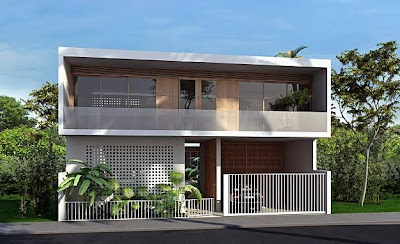

South Korea's Robotland will have a robot rollercoaster that stands 56m high.
When it comes to fun, Asia means business these days -- big business. In 2010, six out of the 10 fastest growing theme parks were from that region. And South Korea is next in line to help Asia steal the mantle of theme park supremacy from the United States.
Executives predict that 2.8 million people a year will visit the 800,000sqm Robotland theme park in Incheon, which is scheduled to open within two years. They also expect traditional competition to be blasted out of the water.
A two-hour drive from Seoul, the capital, Incheon is witnessing the creation of a technology-based metropolis, virtually from scratch, with high speed rail and road links to the ultramodern national airport. So it is only fitting that the futuristic robot magic kingdom will sit in the city’s hub, the Cheognan district. Landmark Entertainment, the company that worked on the Terminator and Jurassic Park attractions in California’s and Orlando’s Universal Studios theme parks, promises four thematic Robotland areas, the world's first robot museum, a daily robot parade and a robot rollercoaster that stands 56m high. The themed areas will include a child-centred "Kidbot Village", which looks at the history of robots, and Fun City, which promises well-known characters from film, comic books and video-games.
"If you take a normal industrial robotic arm that can twist and throw you around in 3D, it can provide so many more movements and sensations than a conventional rollercoaster,” said Brendan Walker, a thrills engineer who has helped construct some of the most daring and scary rollercoasters in the world. “But then you start thinking about controlling our experience through artificial intelligence. It all become a bit darker and weirder. I can trust a ride operator but can I trust a robot? There's an element of horror here. "
The ambitious government-backed scheme is designed to showcase South Korea's technological prowess. Education is very much at the heart of the big idea and the theme park will act as a honey-trap for kids interested in robotic engineering.
But South Koreans are not only banking on robots. Universal's planned park outside of Seoul, a $3.6 billion project and the company’s third in Asia, is back on course for a 2014 opening, seemingly buoyed by the growing appetite in the Asian market.
Meanwhile, two existing giants of the Korean theme park industry, Everland and Lotte World, recorded double digit growth in customer visits and were featured in the top 10 fastest growing theme parks in the world.
Lotte World, the world's largest indoor theme park, is a giant shopping, sports and activity complex, but its main attraction is the amusement centre, complete with rollercoaster, ice rink, monorail and a Magic Island with swimming pools and cinemas. Crowds of children on school trips from the suburbs of Seoul stream in through the ticket hall and leave several hours later, suitably enchanted by their visit.
Everland is an hour's drive from Seoul in Yongin and has five themed areas, including a zoo, a Caribbean Bay waterpark and the world's steepest wooden rollercoaster. Opened in 1976, it is the nations' largest complex and ranks in the top 10 in the world for attendance figures. Not surprising considering the project is a subsidiary of the technology giant, Samsung.
Across Asia, attendance to theme parks rose last year by 7.3%, compared to 1.8% in the United States. Attendance in the region is expected to rise to 290 million in 2012, from 249 million in 2007.
China has 20 theme parks faring well. The only blot on the landscape is the ban slapped on all new constructions because of concerns that property speculation is overheating at the moment.
Tokyo still has some of the biggest attractions at the moment thanks to the well -established brands of Disneyland and Universal. But bucking the upward trend across Asia, Disneyland and Disneysea have seen falling attendances in the first six months of this financial year.
In Europe and the United States, analysts say, actual numbers may not be falling but spending per trip is, provoking parks to take a leaf from the low-cost airline industry and charge for "unbundled" services, like locker facilities before being flung around on a ride or dryers after a soaking on the flumes. If the US wore the crown in the 20th century for its creation of the modern fantasy fairground, than Asia is on course to assume supremacy in the first half of the 21st century.
source
http://www.bbc.com/travel/feature/20111115-south-koreas-robotland-and-asian-theme-park-supremacy


























































